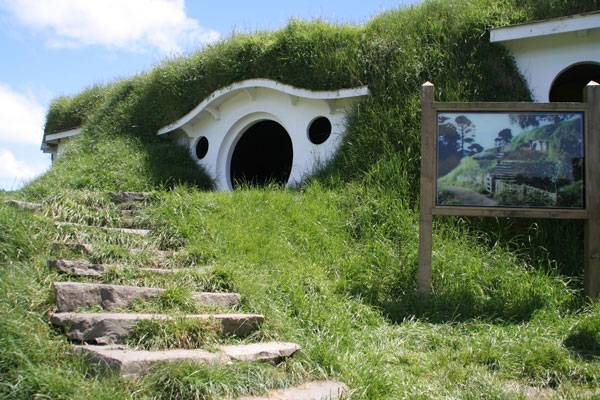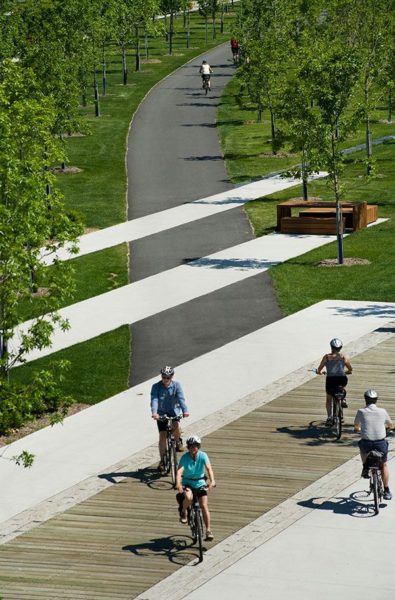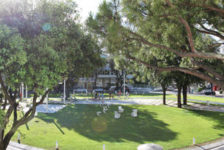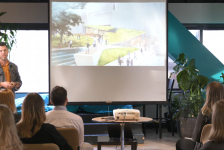We look at the subject of the struggling landscape architecture student and see what hope there is for them to improve. Becoming a landscape architect is a demanding task that requires students to be involved at every stage of their studies to succeed. Whether you are a student now, or were years ago, it is likely that you are more than familiar with the specific routines and resources that are a great background to face this breathtaking profession. Once you have incorporated these subjects into your learning, it might seem to you that they have always been there. But the reality is that it takes time to perfect your skills and put them to practice in the most effective way. This process can be difficult and some students can appear to be left behind, even though a promising career in landscape architecture might be on the horizon. We know that it is frustrating but this a situation that is possible to reverse. What we propose to you today are some practical strategies to take better advantage of your potential and develop the required changes to set up an awesome practice. Let´s start checking out some ideas.
What do “YOU” Want to Learn?
This basic question is a great one to be asked regularly as it will keep you focused on your interests, and the aspects of landscape architecture that motivate you the most. When teachers present a new task for example, you can ask yourself what would you like to know more about, and chose something to explore in greater depth. In this way, apart from developing the content of the project, you could own it. There are plenty of aspects to work on through all exercises, such as environmental psychology, recycling rain water or low-cost design. By taking the chance to drive your learning and making it a little more personal, you will be more involved and it will make it seem effortless.

One of the referenced sites in our hit article on environmental psychology. David H. Koch Plaza at the Metropolitan Museum of Art © OLIN / Sahar Coston-Hardy
Being Well Organized Means Everything
It sounds like a very obvious and logical conclusion when facing any subject; but this is the key to successful project based tasks. Effective organization reduces the usual pressure before the deadline, and increases your productivity. Once you are tasked with a project, it is a good idea to identify the main structural aspects you have to develop and start there, instead of working without any prioritization. As time is limited, by being better organized you will be able to predict what you will need to work on, and have it available to avoid disruptions and taking too long on simple tasks. There are a lot of methods to organize yourself in detail that vary from person to person, but Get Things Done by David Allen is a great place to start. WATCH: Two Minutes with David Allen – Implementation Tips
What Useful Resources Should You Know?
It can be interesting to gain expertise using software that allows you to work quickly and show your ideas from any perspective, but you need to draw by hand as well. The task can seem overwhelming, but it need not be. Start by learning two or three versatile 3D programs such as SketchUp, which is a very good and well-known option, and match this with Adobe Photoshop to edit the images. It is easy to learn and works well. Furthermore, there are hundreds of online tutorials for both to help you. Thinking long term, it would be a good idea to be familiar with the AutoCAD suite, such as AutoCad MAP or AutoCAD Revit, which are both in demand in many countries. And if you need to check which plants best suit your site, then here is a specific browser Plantselectr to get an instant guide. WATCH: Sketchup Projects
In Search of Online Inspiration
Contemporary references are available every day on the Internet. That is interesting as you can refresh ideas and be aware of the latest technical solutions and trends. Our own website has a wealth of project reviews and practical advice to inspire you. Some of the other most varied websites focused on landscape architecture are Landezine or landscape + urbanism. For specifics fields you could check out an incredibly wide collection of playgrounds at Play-Scapes, or the urban spaces at Public Space or see this range of placemaking strategies or green roof projects.
Keep Yourself Curious And Enjoy
One of the singularities in our profession is its interdisciplinary character, and how it connects to unexpected fields. That is fantastic news because going further, even when doing free time activities, we feed our resources. In fact, it is highly recommended to develop and increase your true interests instead of limiting them to the ones you assume are the most useful. Your next great idea could come from literature, trips, or films, such as The Lord of the Rings inspiring sustainable hobbit style houses around the world

“Bag End” by Rob Chandler (Rob & Jules) – Flickr. Licensed under CC BY-SA 2.0 via Commons
How to Learn From Others
Apart from the world´s top landscape architects in books or in the media, there are many people to learn from around you if you are open to them. Why not take advantage of it? Asking questions of your teachers is a valuable source to clarify ideas and show interest. Their direct feedback could help you advance instead of figuratively walking around in circles. Be confident and ask them for advice! Classmates also provide interesting suggestions. As they have the same difficulties as you, attending public presentations or reviews of their work can enlarge your perspective and help you understand how they overcame their difficulties. This also provides the opportunity to to see what the teachers take a positive view of and you can then ask yourself why.
– Learning never ends, no matter your age or level of experience. Therefore, learning how to learn better sounds like a very good idea. Of course this can be challenging, but this is one of the first steps to progress, and every student must face it personally. What top tips would you give to a landscape architecture student who wants to improve? Recommended Reading:
- Drawing and Designing with Confidence: A Step-by-Step Guide by Mike W. Lin
- Landscape Perspective Drawing by Nicholas T. Dines
Article by Elisa García Nieto Return to Homepage Featured Image: “University Life 29” by Francisco Osorio. Licensed under CC-SA 2.0 via Flickr
Published in Blog








